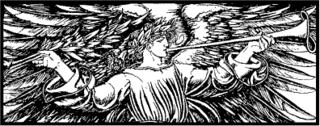I see Psa 138.2 as our "
Magna Carta":
I will bow down toward your holy temple
and will praise your name for your love and faithfulness,
for you have exalted above all things your name and your word.
Here's how I understand this verse:
It is first of all an explicit expression of gratitude and praise by King David for God's faithfulness. Notice that it is a poetic triplet. The first line describes David's physical action; the second line echoes it by expressing the spiritual component (and motivation) for the physical action. Finally, the third line specifies what God has done to prompt David's praise of God's faithfulness.
The third line is the main statement that the triplet builds up to. What does this third line mean? The Hebrew is a little difficult by way of ambiguity, and this is reflected in the variations of translation in our different versions. Part of the ambiguity is whether God has exalted
both His Name and Word above everything else (NIV, RSV, ESV, TNK), or rather His Word above His Name (NKJ, KJV). There is no ambiguity about the compound word translated
your-name. Commentators are agreed that this is a poetic reference to God's reputation and character.
Perhaps the key word, however, is
'imrah which can be translated either
word in the sense of decree or law, or
promise. Commentators Keil and Delitzch, whom I often refer to, see
'imrah in this Psalm as referring to God's promise to David. They understand the important third line as David saying:
God, you have fulfilled your promise to me in a way that has surpassed everything you've done before, even those great deeds by which you have established a Name for yourself.
In other words, they understand the Hebrew as meaning that God has exalted His Word (= promise to David) above His Name (= previous reputation).
I find this hard to swallow, though. Without denying that God promised and did great things for David, the events of David's life can hardly surpass God's works in Creation and the Exodus. I don't see God exalting His Word
above His Name here. I prefer to go with the newer translations, including the modern Jewish Bible (TNK), that understand the verse as saying that God has exalted
both His Name
and His Word above everything else.
The meaning then boils down to this: David is confessing that God, by flawless faithfulness, has confirmed and maintained His divine character and decrees as
more glorious and more sure than all other principles of life.
Does this mean that God Himself submits to a rule of law? No, Psa 138.2 doesn't say that
directly. What it says is that His "track record" of abiding by His own character and decrees is flawless. From the other Scriptures, we know that His "track record" has been flawless from the Creation to the present! (Nor does God submit to a rule of law in exactly the same way that we do. For us, the rule of law is imposed from outside of ourselves, by the greater community or government. What God "submits to" is
His own character, and the principles dictated by that character, such as truth and faithfulness.)
The reason Psa 138.2 is significant to me, is that David is putting into words what all his generation could observe in the preceding history of their nation, namely that
God's Word does not fail and God's character does not waver. In our generation, we can look back on the greatest test of God's Word and Character that could ever occur: the test of whether He would keep His promises of redemption even at the cost of His own Son. Since God passed that test, we now know beyond question that God will never go back on His Word nor alter His character. The result for us is indeed much like the result of the
Magna Carta for the English barons:
we can live securely under the rule of our king, knowing that He Himself abides by the very laws and principles He imposes upon us.







